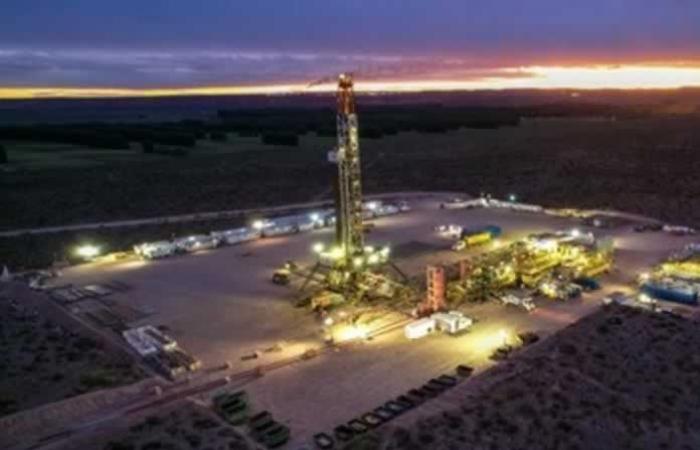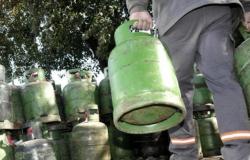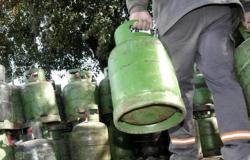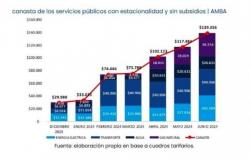A blockade by members of a Mapuche community at the access to YPF’s Loma La Lata natural gas field complicated production in Vaca Muerta since Tuesday morning. According to sources in the sector, about 3 million m3 were left out of the system in one day, just when a polar wave invades Argentina and household demand for gas grows.
The projection of the authorities and companies indicates that between the end of Wednesday and Thursday there will be less gas in the pipes than necessary to have the system in optimal conditions. That is, avoid cuts to users, as already happened at the end of May, first with Compressed Natural Gas (CNG) service stations that have interruptible contracts and then even with industries that pay to have stable supply all year round.
Given the low temperatures that are coming, the Government is monitoring together with the gas companies and the electricity sector – which uses the fluid in thermal plants to generate energy – that there is enough fuel for Saturday and Sunday, when the worst is expected. of the polar wave.
In parallel, the Government signed a contract with Bolivia two weeks ago to ensure gas imports starting in August, during the 45 days that the reversal of the Northern Gasduct will not be ready.
The only public work that is still underway was delayed with the change of authorities before and after the electoral process, and that delay generated a great economic problem: Argentina will pay four times more for imported fuel than for local fuel (between 18 and 21 dollars per million BTU from Bolivia against US$ 4.50 from Vaca Muerta). The most expensive energy is the one that is not available, but the country will face a large economic cost due to this situation.
The Mapuche blockade
According to industry sources and according to what was reported by the La Mañana de Neuquén portal, a protest by the Mapuche Painemil community began on Tuesday at noon because a member ran out of gas in her home, which is just above the second world reserve of the fluid.
The access cut prevented some 280 YPF workers and their contractors from leaving the Loma La Lata facilities to change shifts, amid the low temperatures in Patagonia. Even, sources point out, in this blockade the truck is stuck with the bottles (Liquefied Petroleum Gas -LPG-) that would solve the problem.
According to the companies, the affected operations are only YPF’s, although there are others in the sector who claim that the rest of the operators are also complicated. He finally got up on Wednesday afternoon.
The problem is also a warning sign for the legal security of future investments. For example, YPF and Petronas (Malaysia) could develop Liquefied Natural Gas (LNG) to channel exports by ships every day of the year starting in 2027 or 2028.
If gas production conflicts with the “social license” (that communities accept these jobs on their lands), the economic and reputational cost of a project of such magnitude will increase.
Currently, gas production in Neuquén reaches 105.59 million m3 per day – latest data available, from May 2024 -, so a conflict like this took just under 3% of the total out of the system. And throughout the country, fuel extraction reached “the best May in history” last month, with 150 million m3 per day, according to consultant Ariel Kogan.
On the other hand, and with a view to the coming months, the state company Energía Argentina (Enarsa) closed in mid-June an addendum to the gas import contract with Yacimientos Petrolófilos Fiscales Bolivianos (YPFB) to guarantee the supply of the North of the country to starting August 1.
The original contract, which runs until December 31, 2026, had several addendums. The last one extended until July 31, 2024 and offered Argentina fuel under firm (non-interruptible) conditions at $12 per million BTU.
As the work necessary to reach Córdoba, La Rioja, Catamarca, Tucumán, Santiago del Estero, Salta and Jujuy, which is the reversal of the Northern Gasduct, will not be ready before September 15, Argentina extended the contract with Bolivia to guarantee the gas supply.
The production of the neighboring country is declining rapidly and the little gas available they have goes to Brazil as a priority. Previously, Enarsa and Petrobras had agreed to triangulate that gas, so Argentina would take the fuel from Bolivia while Brazil buys LNG – the cost of which Enarsa is responsible for – or uses hydroelectric energy.
In this case, what is notable and that generated criticism from the opposition and from off-the-record companies is that the cost of imports (at the request of Enarsa up to 4 million m3 per day), which today is US$ 12 per million BTU, will rise to between US$ 18 and US$ 21 starting in August. Meanwhile, the oil companies that produce in Vaca Muerta are paid US$4.50.
Official sources explain that the difference occurs because Argentine gas cannot be transported to the North due to the lack of infrastructure. In addition, Bolivia’s cost will rise because the “take or pay” clause was removed.
«The price reflects this circumstance and is within the parameters of the Supply Guarantee Premium that had already been introduced as a concept in Addendum VI of April 22, 2022, with similar price levels. As a reference, on that occasion YPFB was paid US$ 22.5 /MMBTU for the additional gas to the base block and currently 17.5 dollars are being paid for the same concept (Addendum VIII, dated September 13, 2023). », they said in the sector.
Argentina’s total supply with gas imports from Bolivia in 2022 was 10.50 MMm3/day on average at US$ 11.99 /MMBTU and in 2023, 6.2 MMm3/day at US$ 10.40 /MMBTU .
EN/ag.agencias.cl./gr.






